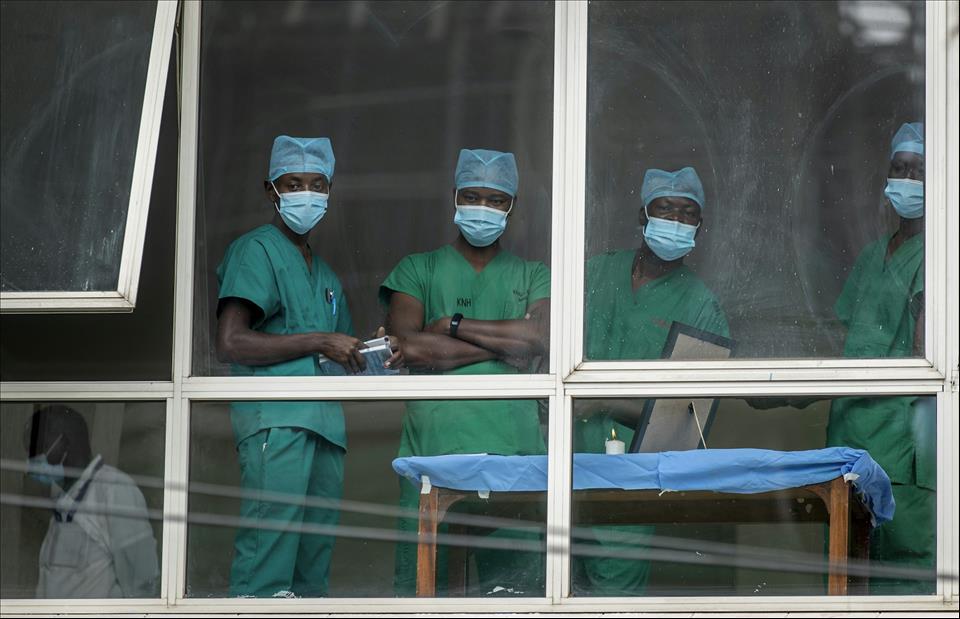
Why It's A Critical Time For Canada To Renew Its Commitment To Global Health Co-Operation
Traditionally, Canada has taken pride in being a good global health citizen through distinct contributions as a middle power. Active participation in multilateral institutions such as the WHO , close co-operation with like-minded states and research partnerships led by low- and middle-income countries have defined Canada's global health brand.
Since the early 2000s, Canada has also initiated and funded major initiatives on reproductive, maternal and child health , nutrition and the control of infectious diseases . The International Development Research Centre and Grand Challenges Canada , alongside researchers and civil society organizations, have generated further tangible benefits for the health and well-being of populations worldwide, while also elevating Canada's standing on the world stage.
Pandemic stress testHowever, the COVID-19 pandemic has since triggered seismic changes in the global health landscape. The pandemic itself stress-tested Canada's global health role, earning the country mixed reviews.
A shipment of COVID-19 vaccines distributed by the COVAX global initiative arrives in Abidjan, Ivory Coast on Feb. 25, 2021. (AP Photo/Diomande Ble Blonde)
While the federal government provided billions of dollars to collectively fight SARS-CoV-2, through initiatives such as the COVAX Facility and ACT-Accelerator (Access to COVID-19 Tools Accelerator ), these important contributions were overshadowed by Canada's failure to champion global vaccine equity . Rather than bringing countries together, the pandemic prompted many to prioritize national interests .
Since the end of the emergency phase, governments have struggled to agree to a pandemic treaty and there has been a shift in attention to other pressing needs. Calls to decolonize global health have instead been met with a decline in financial commitments by the U.S. and other donor countries .
This concerning shift in the global health landscape signals an important need for Canada to reflect on its role in global health. Key findings of our panel's report directly challenge the outdated notion that global health is simply about development assistance.
Instead, we identify where domestic and global health needs intersect in an interconnected world of shared risks and opportunities. We conclude that domestic health and well-being cannot be advanced without a robust commitment to global health co-operation. The key is to urgently identify these win-wins as points of navigation in an era of what's known as polycrisis .
Priority issuesTo renew Canada's global health role, the panel identifies four priority issue areas that bring together domestic and global health needs:
- Champion an accelerated and equity-focused universal health coverage strategy with particular emphasis on primary care and the rights of women and girls;
- Advance a One Health security approach to pandemic readiness that emphasizes the interconnectedness of all life, need for primary prevention and central importance of sustainability and equity; spans upstream risks as well as downstream preparedness and response measures; and builds core capacities such as a standing emergency workforce;
- Renew Canadian leadership in health promotion and protection by advancing a well-being economy focused on serving people and the planet, rather than the generation of wealth as an end goal; and prevents the harms and promotes the benefits from for-profit businesses, their activities and the economic systems that sustain them, known as the commercial determinants of health ;
- Initiate a Canadian Emergency Workforce for Health Innovation Program to urgently tackle the domestic and global health workforce crisis including a commitment to zero poaching of international health-care workers by 2035.
Microscopic view of H5N1 avian influenza particles. The growing threat from highly pathogenic avian flu offers a clear example of how a retreat from global health co-operation directly weakens the capacity of all countries to protect domestic populations. (CDC and NIAID), CC BY
The panel recommends that three strategic actions are needed to take forward these priority issue areas:
- A Canadian Global Health Strategy that sets out a renewed rationale for global health engagement, key priorities for federal, provincial/territorial and local levels of government, targeted investments and clear metrics to monitor progress;
- A coherent and targeted plan to bolster public and private investments in science and innovation for critical priorities such as the health workforce, One Health Security, along with research capacity in Indigenous communities and the developing world; and
- A commitment to ensuring Canadian capacity to engage in global health decision-making, diplomacy and partnerships through the appointment of a Global Health Ambassador; establishment of a Canadian Global Health Hub (CG2H) that brings together available expertise, talent and resources; and a training program for our next-generation of leaders.
The growing threat from highly pathogenic avian influenza and the health impacts of climate change are looming examples of how a retreat from global health co-operation at this time would directly weaken Canada's capacity to protect health and well-being at home.
From the World Health Organization's tracking of the ever-changing influenza virus to the rapid development and deployment of medical countermeasures and the joint tackling of the causes of global warming, a retreat behind national borders makes little sense. Building on a storied history of engagement that supersedes partisan politics, there is no time to lose for Canada to strategically renew its role in global health.

Legal Disclaimer:
MENAFN provides the information “as is” without warranty of any kind. We do not accept any responsibility or liability for the accuracy, content, images, videos, licenses, completeness, legality, or reliability of the information contained in this article. If you have any complaints or copyright issues related to this article, kindly contact the provider above.






















Comments
No comment